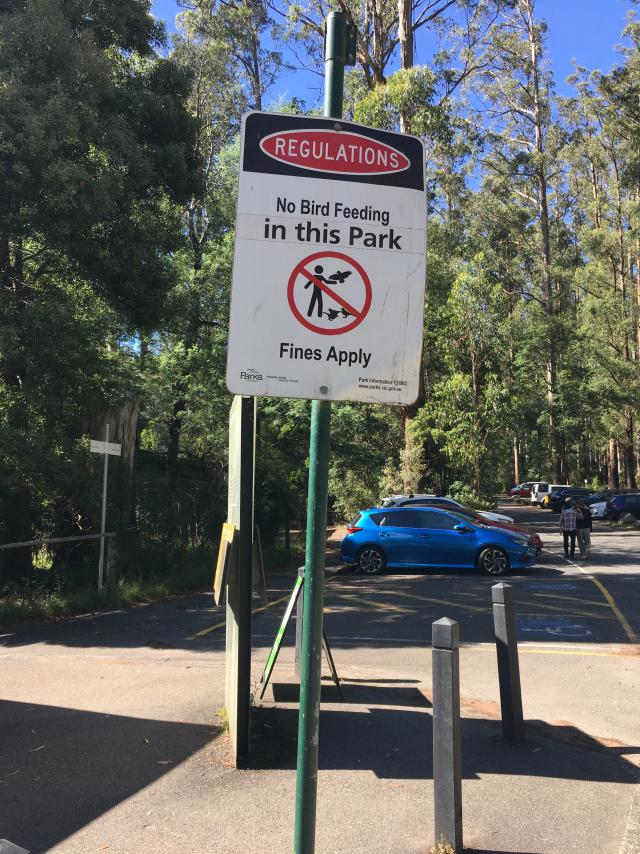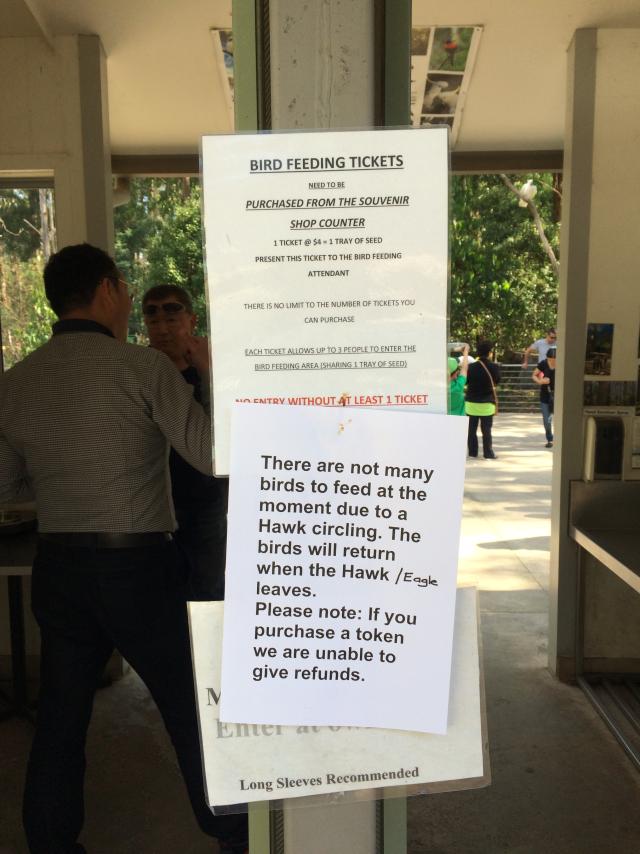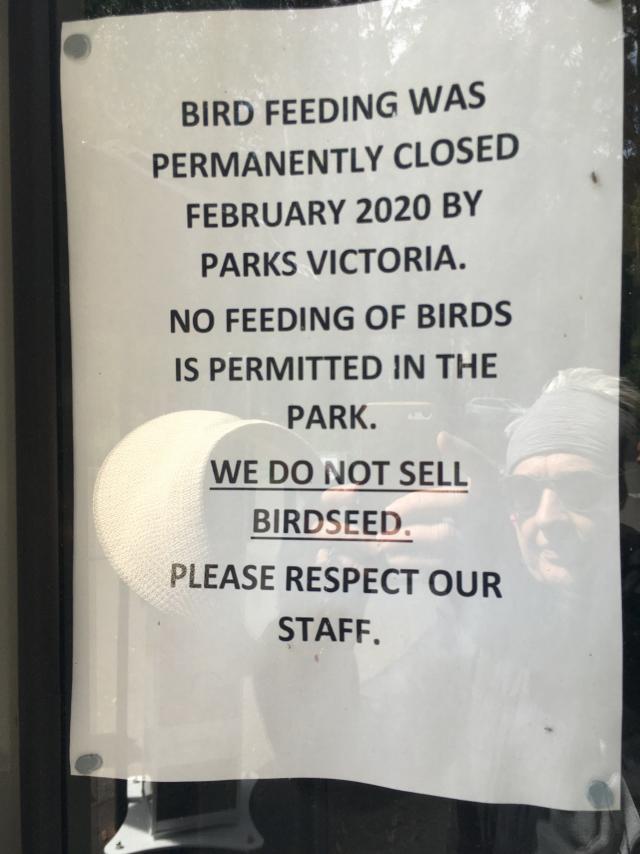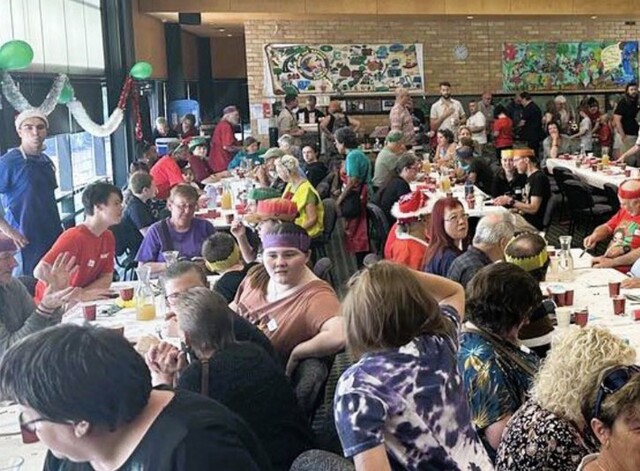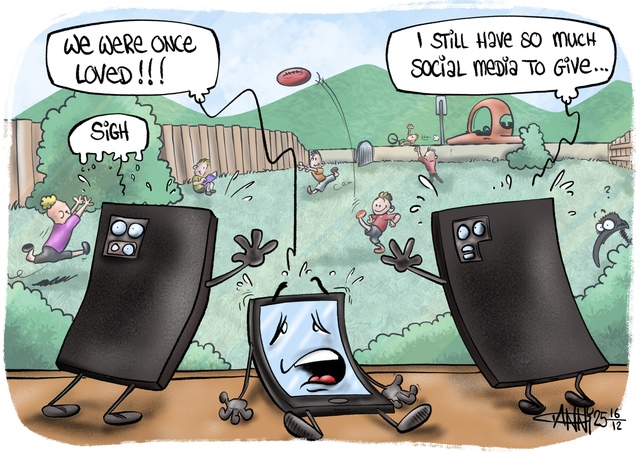Grants Picnic Ground, nestled in the Dandenong Ranges, had long been a popular spot for nature lovers, tourists and birdwatchers alike.
However, recent concerns raised by a Monbulk resident highlighted a growing issue at the site: the feeding of native wild birds by tourists, a practice that some feared could harm the birds and disrupt the delicate balance of the local ecosystem.
Lola Diaz, who lived in the nearby township of Monbulk for years, first noticed the troubling trend back in 2017.
What she described as “the abuse of native animals” was exacerbated by a lack of adequate signage and enforcement, particularly for foreign tourists who might not have understood the risks involved in feeding the birds.
“It was clear to me that tourists, particularly those arriving in buses, were being encouraged to feed the cockatoos, often with bags of sunflower seeds,” Ms Diaz said.
“I saw families, with children leading the charge, throwing seeds to the birds as though it was some kind of tourist attraction.”
Ms Diaz’s concern was twofold.
Firstly, she argued that feeding native birds like the cockatoos could lead to overfeeding, causing the birds to become sick or reliant on human-provided food.
Secondly, she believed that the lack of multilingual signage left non-English-speaking tourists unaware of the dangers of feeding the animals.
“The majority of people at Grants Picnic Ground weren’t there for a barbecue or a picnic – they were there to interact with the cockatoos, feeding them nuts and seeds,” she said.
“The problem was, most of these signs were only in English, which made it incredibly difficult for many tourists to understand that feeding the birds was illegal. This was where different cultures clashed, and I thought it was unfair to target tourists when the real issue was a lack of communication.”
In her email to Parks Victoria, Ms Diaz detailed an incident in December 2024, where she observed busloads of tourists heading directly to an independent vendor who had reportedly set up a stall, not connected to the cafe, selling seeds for bird feeding.
Despite attempts to warn the vendor that their actions were illegal, the Monbulk resident said there appeared to be no enforcement, and large crowds continued to feed the birds unabated.
Since 2017, Ms Lola Diaz has been actively raising concerns about the feeding of wild birds at Grants Picnic Ground, sending multiple emails to Parks Victoria in an effort to address the issue.
Despite her persistent efforts, including detailed reports of illegal bird feeding practices and the impact on native wildlife, Ms Diaz said she has received no response or acknowledgement from Parks Victoria.
Her frustration has only grown over the years, as she witnessed the issue worsen, with tourists continuing to feed the cockatoos in large numbers.
Parks Victoria, the government body responsible for managing the picnic ground, acknowledged the issue and clarified that feeding the birds had been prohibited since 2020.
Parks Victoria Ranger team leader Anthony Nimbs said Grant’s Picnic Ground is a great place to see colourful native birds, but feeding them could make them sick.
“It was much better to let them forage for seeds naturally. We were looking at more signage to discourage people from feeding the birds. Rangers did patrol the area, and while we couldn’t be there all the time, we did what we could to educate people about why they shouldn’t feed the birds,” Mr Nimbs said.
Despite these efforts, Ms Diaz and other locals felt that more needed to be done to protect the birds and to ensure that visitors understood the potential harm caused by human intervention.
Ms Diaz’s concerns were shared by some residents who feared the abundance of seeds being sold to tourists could exacerbate the problem.
As she pointed out, many of the tourists she observed were not engaged in activities like picnicking but were focused solely on feeding the cockatoos, further normalising the practice.
“We have to do better,” she said.
“There needed to be better enforcement, and signage should have been in multiple languages to ensure that everyone understood why feeding these birds was harmful.”
The issue of feeding wildlife was not unique to Grants Picnic Ground.
Across Australia, wildlife experts and conservationists had long warned against feeding native animals, as it could disrupt their natural behaviours, cause health problems, and even contribute to an overpopulation of certain species.
For wild birds, feeding by humans could lead to nutritional imbalances, dependence on human food, and even an increase in aggressive behaviour as they competed for handouts.
Ms Diaz’s observations reflected a broader frustration among locals and conservationists alike, who felt that the balance between tourism and wildlife protection had been compromised.
“There had to be respect for the animals that lived in these areas,” she said.
“I felt we weren’t doing enough to protect them, and ultimately, it was about creating a better experience for both the visitors and the wildlife.”
The call for action was clear: better enforcement, more multilingual signage, and stricter regulations on the sale of bird feed.
As Ms Diaz pointed out, this wasn’t just about preventing harm to the birds, but also ensuring that tourists could enjoy the natural beauty of the area without inadvertently causing damage.
For now, Parks Victoria committed to further addressing the issue, with additional signage being considered.
But with the growing number of visitors to Grants Picnic Ground, it seemed that a larger, more comprehensive approach was needed to ensure that the area’s wildlife remained protected for generations to come.

